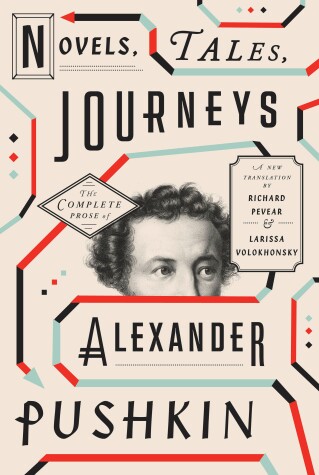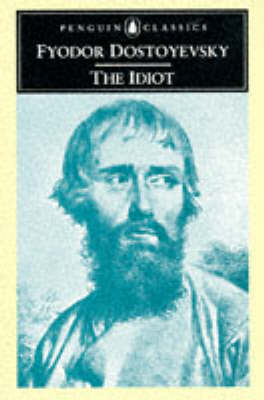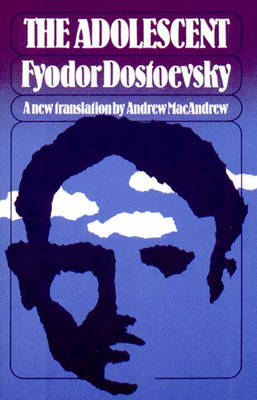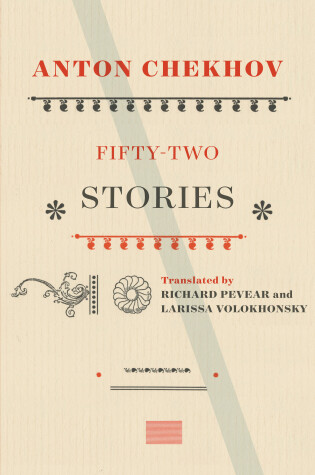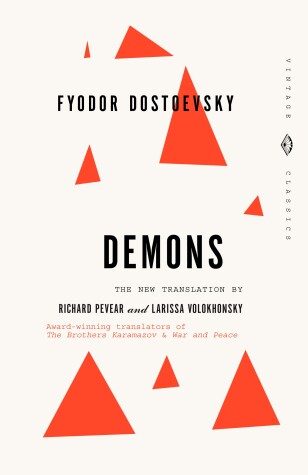Vintage Classics
6 total works
Set during the Pugachov rebellion against Catherine the Great, The Captain's Daughter was Pushkin's only completed novel and remains one of his most popular works. The inexperienced and impetuous young nobleman Pyotr Grinyev is sent on military service to a remote fortress, where he falls in love with Masha, Captain Mironov's daughter - but then the ruthless Cossack Pugachov lays siege to the stronghold, setting in motion a tragic train of events.
This volume also contains another work by Pushkin on the same theme, A History of Pugachov, which presents an impartial, meticulously researched history of the revolt, but was regarded in aristocratic circles as subversive on its publication. Together, these two works provide a fascinating insight into the character of the peasant who tried to overthrow an empress, written with the clarity and insight of Russia's greatest poet.
This volume also contains another work by Pushkin on the same theme, A History of Pugachov, which presents an impartial, meticulously researched history of the revolt, but was regarded in aristocratic circles as subversive on its publication. Together, these two works provide a fascinating insight into the character of the peasant who tried to overthrow an empress, written with the clarity and insight of Russia's greatest poet.
From the award-winning translators: the complete prose narratives of the most acclaimed Russian writer of the Romantic era and one of the world's greatest storytellers.
The father of Russian literature, Pushkin is beloved not only for his poetry but also for his brilliant stories, which range from dramatic tales of love, obsession, and betrayal to dark fables and sparkling comic masterpieces, from satirical epistolary tales and romantic adventures in the manner of Sir Walter Scott to imaginative historical fiction and the haunting dreamworld of "The Queen of Spades." The five short stories of The Late Tales of Ivan Petrovich Belkin are lightly humorous and yet reveal astonishing human depths, and his short novel, The Captain's Daughter, has been called the most perfect book in Russian literature.
The father of Russian literature, Pushkin is beloved not only for his poetry but also for his brilliant stories, which range from dramatic tales of love, obsession, and betrayal to dark fables and sparkling comic masterpieces, from satirical epistolary tales and romantic adventures in the manner of Sir Walter Scott to imaginative historical fiction and the haunting dreamworld of "The Queen of Spades." The five short stories of The Late Tales of Ivan Petrovich Belkin are lightly humorous and yet reveal astonishing human depths, and his short novel, The Captain's Daughter, has been called the most perfect book in Russian literature.
Prince Myshkin, a good yet simple man, is out of place in the corrupt world created by Russia's ruling class.
The fourth of Dostoevsky's novels, this is the story of a 19-year old searching for identity amid the disorder of Russian society in the 1870s. The illegitimate child of a landowner, Arkady travels to St. Petersburg in search of a secret goal - and of a relationship with his father.
From the celebrated, award-winning translators of Anna Karenina and The Brothers Karamazov: a lavish volume of stories by one of the most influential short fiction writers of all time
Anton Chekhov left an indelible impact on every literary form in which he wrote, but none more so than short fiction. Now, renowned translators Richard Pevear and Larissa Volokhonsky give us their renderings of fifty-two Chekhov stories. These stories, which span the complete arc of his career, reveal the extraordinary variety and unexpectedness of his work, from the farcically comic to the darkly complex, showing that there is no one single type of “Chekhov story.” They are populated by a remarkable range of characters who come from all parts of Russia and all walks of life, including landowners, peasants, soldiers, farmers, teachers, students, hunters, shepherds, mistresses, wives, and children. Taken together, they demonstrate how Chekhov democratized the form.
Included in this volume are tales translated into English for the first time, including “Reading” and “An Educated Blockhead.” Early stories such as “Joy,” “Anguish,” and “A Little Joke” sit alongside such later works as “The Siren,” “Big Volodya and Little Volodya,” “In the Cart,” and “About Love.” In its range, in its narrative artistry, and in its perceptive probing of the human condition, this collection promises profound delight.
Anton Chekhov left an indelible impact on every literary form in which he wrote, but none more so than short fiction. Now, renowned translators Richard Pevear and Larissa Volokhonsky give us their renderings of fifty-two Chekhov stories. These stories, which span the complete arc of his career, reveal the extraordinary variety and unexpectedness of his work, from the farcically comic to the darkly complex, showing that there is no one single type of “Chekhov story.” They are populated by a remarkable range of characters who come from all parts of Russia and all walks of life, including landowners, peasants, soldiers, farmers, teachers, students, hunters, shepherds, mistresses, wives, and children. Taken together, they demonstrate how Chekhov democratized the form.
Included in this volume are tales translated into English for the first time, including “Reading” and “An Educated Blockhead.” Early stories such as “Joy,” “Anguish,” and “A Little Joke” sit alongside such later works as “The Siren,” “Big Volodya and Little Volodya,” “In the Cart,” and “About Love.” In its range, in its narrative artistry, and in its perceptive probing of the human condition, this collection promises profound delight.
Inspired by the true story of a political murder that horried Russians in 1869, Fyodor Dostoevsky conceived of Demons as a "novel-pamphlet" in which he would say everything about the plague of materialist ideology that he saw infecting his native land. What emerged was a prophetic and ferociously funny masterpiece of ideology and murder in pre-revolutionary Russia.

